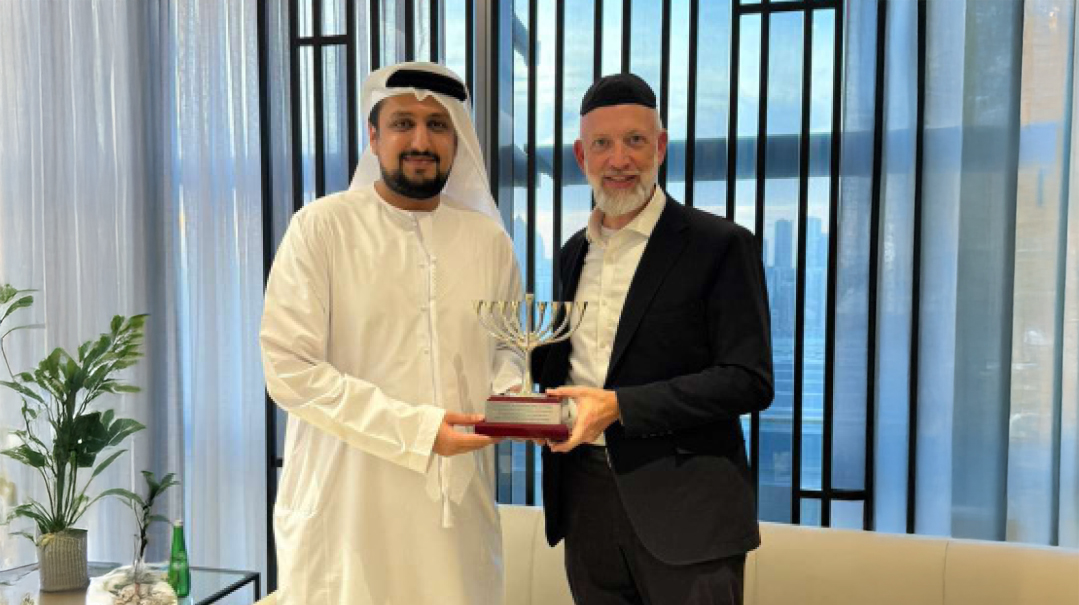The Silver Lining

Lots of us have a running list of hot-button issues that make us step up to the soapbox on occasion: Tuition, frum real estate, e-cigarettes, women’s pictures in magazines, and tablescapes are just some of the trigger topics of 2018. Often though, we sense that it’s better not to “go there,” to refrain from griping about our personal pet peeves, not just because the kids are at the table, but because too much complaining is often just a feeder for negativity and is ultimately unproductive.
However, if we look carefully, some issues demand our attention and indicate areas in our communities that need healing, so it’s worthwhile to speak up. Sometimes there is a cut that has become infected, a wound which needs our attention. The issue moves beyond simply being a stirring topic of conversation at the Shabbos table. It becomes our responsibility. Because it is our responsibility to fix the things that have become broken.
We are imperfect people living in an imperfect world. We fall into traps as individuals and communities, we do the wrong things, we make mistakes, we get into ruts. Sometimes it’s because we feel we have no other way. We resign ourselves to feeling that this is just how it is. But these lapses can leave a distaste in the mouths of others in our communities, and they may even turn some away. And before we know it, we’ve created unhealthy trends that leave negative impressions on those looking in from a distance, too.
We frum Jews hold each other to high standards.
This Simchas Torah, I rolled my eyes at an unfamiliar bochur who was so drunk he needed four men to hold him up. Talk for many of the women was more about the topic of drunkenness on Simchas Torah (how to explain it to our younger kids, concerns about under-age drinking and our teens) than the simchah of Simchas Torah. Those drunken young men are quite a distraction. When naive little girls gawk at them and young boys laugh at them, they take up much of the scenery.
Then the reports came in about the boys who hadn’t yet turned bar mitzvah who got hold of the liquor. Throughout the day of Simchas Torah, I was fielding questions from my younger ones about alcohol: What does it mean to be drunk? What does it feel like? Why do they do it? My kids weren’t talking about the rosh yeshivah who was euphoric in his dancing with the Torah. They were bizarrely fascinated by the inebriated younger people.
Please don’t tell me it’s not a big deal. Please don’t tell it me it’s only once (or twice) a year. Please don’t tell me that the sight of a red-eyed, 12-year-old boy with a Styrofoam cup of whiskey doesn’t feel wrong to you.
Can it be changed? Maybe, if one shul at a time makes sure the young ones stay dry. We can do our best to make it happen, and by trying, we will send a strong message that we care and that their choices matter.
Whoever witnessed it now becomes responsible. But will we just shrug our shoulders and forget about it, or put something in place that prevents it from happening again?
Another issue on my list of concerns to be vocalized is none other than the material peer pressure that so many of the women in our communities are facing. Not so long ago, people understood what they could afford and what they could not. Today we all need, nay, deserve, the best of the best, even if we can’t afford it. And when having high-end items for anything and everything becomes the norm, such standards morph into becoming a frightening societal expectation that can wreak havoc with family stability.
Who is brave enough to buck the trends? Who is going to do things differently than everyone else, and in turn, possibly look different than everyone else? Who is going to admit that there is something wrong about racking up debt in Jewish stores so people can obtain things for themselves and their families that, according to their bank account, are beyond their reach? Is any of this healthy, sustainable, or ethical? Are there other options? Of course. There always are. And we can still support frum businesses.
The underlying issue that drives these material needs, wants, and pressures should be examined closely. Why is the pull so strong? Why do some of our communities struggle with this more acutely than others? What yardsticks are we allowing to define our actualization as human beings in this temporary world? How much does the pressure to appear perfect manifest in our lives and most importantly, why? The whys are crucial in informing the solutions.
Last but not least, I wonder about the challenges we face as individuals in feeling meaningfully connected to our Yiddishkeit. Back in 2012, the journal Klal Perspectives addressed the rising concern that Orthodox Jews are feeling a disconnect to G-d, the Torah, and the Jewish people. Essays in that issue included “The Abandonment of the Soul: The Struggle of Dispirited Observant Jews,” “Merely Coping,” and “Defrosting Judaism.” Unfortunately, words such as apathy, alienation, and at-risk now describe the adult experience of many in our communities.
A local couple who runs an outreach organization has now expanded their programming to offer Shabbos services. Guess who shows up Shabbos morning? Besides the many non-observant participants, there are religious women in the pews who come for the uplifting singing, the explanatory davening and the relevant divrei Torah. Another friend of mine who runs a kiruv organization describes how frum women beg to attend her outreach shabbatons. They crave the inspiration, the meaning, and the reconnection that a kiruv shabbaton affords. One Beis Yaakov-educated young woman told her that after Havdalah on her first shabbaton, she recommitted herself to the laws of family purity which she had let slide.
But there is a silver lining to all this, manifested by the heroes in the frum world who observed the problems and didn’t stop the conversation when it was time to get up from the Shabbos table. They acted and created the change. These are people who founded organizations that deal with issues the rest of us just moan about. They transformed the conversation from being about problems to being about solutions.
There’s Zvi Gluck who started Amudim, which provides a wide array of crisis intervention services for all types of abuse. Last spring, Amudim created a video called “The Kiddush Club,” which addresses the disturbing trend of underage drinking in our communities. The video exceeded 20,000 views. It’s not enough, but the people at Amudim are in the trenches doing more. Amudim understands that awareness, education, and intervention literally save lives. And they have the statistics to prove it.
There’s Rabbi Shmuli Margulies who founded Mesila, the now international organization which provides financial empowerment through education, aiming to change public attitudes toward financial responsibility. Mesila gets into schools with a financial literacy program that at its core, believes an ounce of prevention is worth a pound of cure. They provide counseling services to businesses, financial management programs for women by women, and training programs to enable counselors to help families reach financial independence.
There’s Mrs. Barrie Feld, an Aish HaTorah rebbetzin in Cleveland, Ohio, who realized that the core of our communities, our women, also need rejuvenation. She created the Chizuk Mission, a growth-oriented trip to Israel, which provides observant women of all ages the tools to strengthen their existing commitment and desire to live and lead purposeful, spiritually driven lives. The trip enables women to take the time needed to refill their spiritual tanks and be ready to lead their families and their communities. Because transformational Israel trips can’t just be for the not-yet-religious. We need them, too. t
How great are our people. We have individuals in our midst who aren’t afraid to face the demon in the eye, who refuse to push it under the rug, and are emboldened to take practical action. Me — I mostly end the conversation when it’s time to bentsh. But I am forever grateful to those who don’t. They are my heroes.
Originally featured in Mishpacha, Issue 731. Alexandra Fleksher is an educator, a published writer on Jewish contemporary issues, and an active member of her Jewish community in Cleveland, Ohio.
Oops! We could not locate your form.













